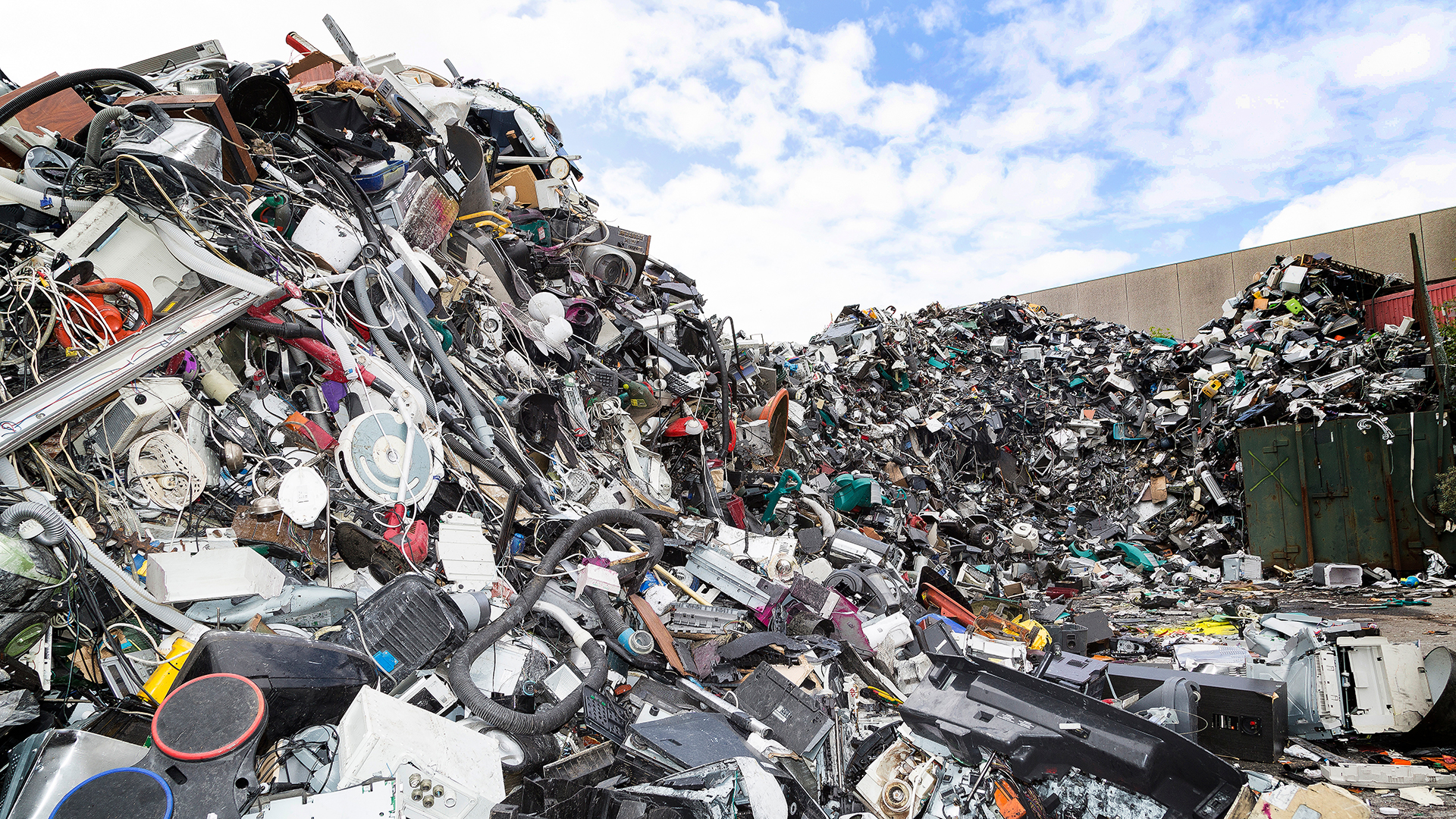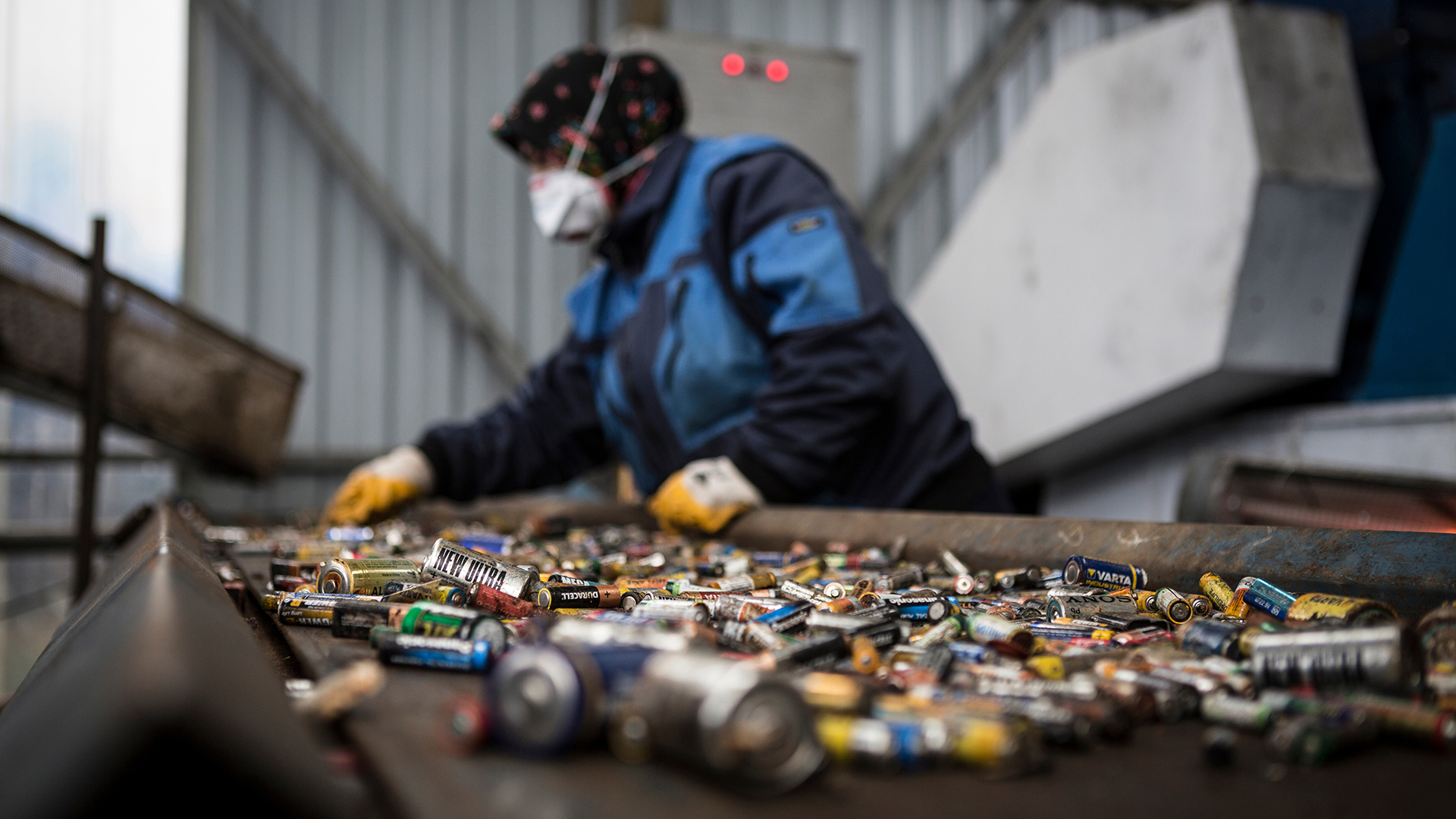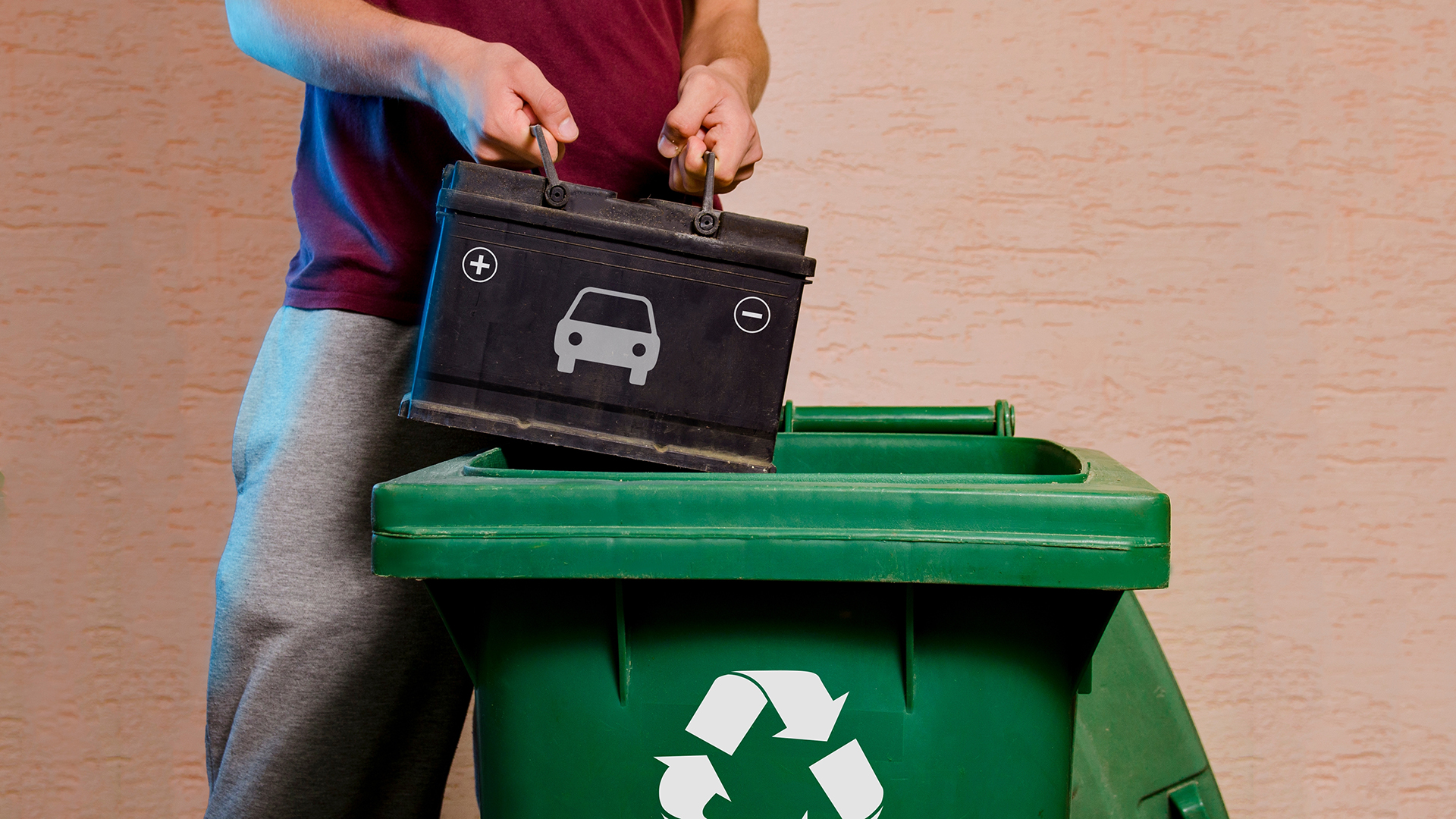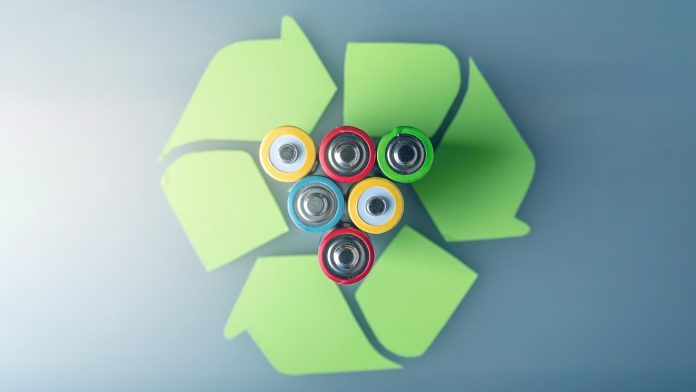The transition towards renewable energy sources and the subsequent increase in demand for batteries has necessitated a comprehensive strategy for battery recycling.
While countries such as China, India, and the European Union have taken significant strides in this regard, battery recycling in the US lags behind. This disparity is marked by a stark difference in policies, infrastructure, and public awareness pertaining to battery disposal and recycling practices.
The current state of waste management in the US
In the realm of waste management, the United States grapples with mounting piles of discarded batteries, a stark contrast to China, India, and the European Union, which have made strides in recycling these potential hazards.
The country faces significant challenges in handling this form of e-waste due to several factors that include inadequate infrastructure and regulatory frameworks. To compound matters further, poor awareness among consumers about the importance of proper battery disposal exacerbates the problem.
Addressing these challenges is an uphill battle for America as it lacks adequate recycling facilities specifically designed to handle e-waste, such as batteries. Most existing facilities are primarily geared toward managing traditional waste streams like paper, plastic, and metals.
As a result, most discarded batteries end up in landfills, where they pose serious environmental risks due to their toxic components, which can leach into soil and water sources over time.
The lack of efficient infrastructure for battery recycling in the US is yet another hurdle that hinders progress in this area. Existing structures were not built or adapted for high-tech forms of waste like lithium-ion batteries found in electric vehicles and other emerging technologies.
Moreover, gaps within the legal framework make it even more difficult to manage this growing stream of waste effectively.
Despite these numerous obstacles hindering effective battery recycling in America, there is increasing recognition of the urgent need for action on this front.
Stakeholders across sectors are beginning to acknowledge both the environmental implications related to poor battery disposal practices as well as opportunities lost through failing to reclaim valuable materials contained within these power cells – thus highlighting areas where improvements could yield significant benefits for both society and economy alike without resorting to concluding phrases or statements.
Understanding the importance of battery disposal
The improper disposal of batteries poses serious threats to the environment and human health, underscoring the pressing need for efficient recycling efforts.
The environmental impact is significant; discarded batteries leak harmful chemicals into soil and water systems, disrupting ecosystems and contaminating food chains. They also contribute to air pollution when incinerated with other forms of waste. Technological advancements in battery design have led to more complex chemistries that pose further challenges for safe disposal and recycling.

The economic implications cannot be overlooked as well. Efficient battery recycling in the US could present an opportunity for economic growth through job creation in the waste management sector.
It could also lead to cost savings by reducing dependence on raw materials needed for new batteries, many of which are finite resources subject to price volatility due to global market trends.
Yet, despite these potential benefits, the infrastructure and technologies required for large-scale battery recycling remain underdeveloped in many parts of the world.
Health risks associated with improper battery disposal are another critical factor driving the need for better recycling practices.
Exposure to leaked chemicals from discarded batteries can cause serious health issues such as respiratory problems, skin irritations, neurological damage, and renal dysfunction, among others.
These risks are particularly acute in developing countries where informal e-waste processing activities often take place without proper safety measures or regulations.
While some regions have made strides towards efficient battery recycling practices through policy initiatives and increased investment in relevant technologies, the US lags behind significantly.
This gap not only exposes shortcomings in American waste management strategies but also represents missed opportunities both economically and environmentally speaking; it suggests room for improvement towards a more sustainable future where technological progress does not come at such a high environmental cost.
The challenges in battery recycling in the US
Navigating the complexities of efficient battery disposal presents a myriad of challenges, spanning from technological limitations to regulatory hurdles and economic constraints.
The most prominent among these are the limitations in recycling technologies, which often fail to extract valuable materials from different types of batteries efficiently. Furthermore, current technologies may not be environmentally friendly as they can produce harmful by-products that have adverse environmental impacts.
As such, there is an urgent need for technological advancements that can offer more efficient and sustainable solutions.
In addition to technological limitations, regulatory hurdles also pose significant challenges. In many regions, including the US, regulations around battery disposal and recycling are either non-existent or insufficiently enforced.
This lack of enforcement hinders the development of effective recycling programmes and discourages businesses from investing in advanced recycling technologies.
Moreover, without stringent regulations on proper battery disposal methods, harmful substances contained within batteries can lead to severe environmental damage.
Economic constraints also play a critical role in shaping the landscape of battery recycling efforts. The absence of substantial economic incentives discourages private sector participation in developing innovative solutions for battery waste management.
Companies might find it more profitable to mine new resources rather than invest time and money into refining existing ones through recycling processes – thereby exacerbating resource scarcity issues.
Addressing these challenges requires a multi-faceted approach that focuses on advancing technology developments while concurrently implementing robust regulations and providing sufficient economic incentives for stakeholders involved in battery production and disposal processes.
Without such integrated efforts, achieving sustainability in battery disposal and recycling will remain a formidable task. The environmental impact of improper battery disposal underlines the urgency to close the gap in recycling efforts, particularly in regions like the US, where such challenges are most pronounced.

Public perception and awareness
Public perception and awareness play a pivotal role in the success of recycling initiatives, as they can influence both individual behaviour and policy decisions.
For instance, a study conducted by the European Environment Agency revealed that increased public awareness about the environmental impacts of improper waste disposal significantly improved recycling rates across several EU nations.
This underscores the power of informed communities to drive positive change in waste management strategies. In contrast, the lack of public awareness about battery recycling in the US, its benefits, and consumer responsibility could be a major factor contributing to the country’s lagging position in this sector.
To foster necessary changes in consumer behavior and attitudes towards battery recycling in the US, it is essential to implement comprehensive public engagement strategies. Education campaigns aimed at raising awareness about the significance of battery recycling can play an instrumental role in shaping public opinion.
These campaigns should highlight both the environmental impact and economic potential associated with proper battery disposal methods. The use of various communication channels – including social media platforms, local community events, schools and institutions – can help reach diverse demographic groups and effectively disseminate accurate information.
However, even with heightened public awareness and engagement efforts alone, it may not suffice if structural issues within the country’s recycling infrastructure serve as obstacles for consumers who want to recycle their batteries responsibly.
Inadequate collection systems or lack of accessible facilities can discourage individuals from participating in recycling initiatives despite their understanding of its importance.
Therefore, concurrent improvements need to be made to improve access points for citizens to dispose of their used batteries properly without causing inconvenience.
Addressing these challenges requires integrated solutions that involve all stakeholders – government bodies must invest more heavily into developing robust recycling infrastructure, while businesses involved in the production or selling of electronic devices should also bear part of this responsibility by facilitating take-back programmes or other convenient methods for customers to return used batteries.
At a societal level, fostering an ethos where consumers view correct disposal as part of their duty towards protecting the environment could prove vital for closing this gap between the US and other countries regarding battery recycling.
Current policies and regulations
Current legislative measures and regulatory frameworks play a crucial role in shaping the landscape of battery recycling, influencing both industry practices and consumer behavior.
In the United States, however, these regulations are currently not as stringent or comprehensive compared to other countries with advanced battery recycling industries, such as China, India, and EU nations.
The lack of robust policies that encourage economic incentives for recycling batteries can discourage participation from both end-users and major industry players. As such, this absence of regulation translates into missed opportunities for technological advancements and industry collaboration within the sector.

The paucity of comprehensive legislation aimed at promoting battery recycling is further hampered by the lack of economic incentives that could stimulate growth in this sector. For instance, subsidies or tax breaks could incentivise companies to invest more heavily in technologies that support sustainable disposal and recycling processes.
Furthermore, government-backed rewards programmes could also motivate consumers to recycle their batteries responsibly instead of merely discarding them amongst general waste.
This scenario contrasts starkly when international comparisons are drawn against countries like China, where government policy is driving significant investment into technological advancements for battery recycling.
Their approach involves strict enforcement mechanisms coupled with substantial economic benefits for compliance, which promotes greater adoption among corporations and individuals alike.
Additionally, a high degree of industry collaboration is driven by shared interests in reducing environmental impact and capitalising on potential profits from recycled materials.
The environmental impact stemming from improper disposal or non-recycling of batteries cannot be overstated. With millions of electronic devices powered by lithium-ion batteries coming to end-of-life each year, effective management strategies are crucial to mitigate potential harm to ecosystems due to leaching toxic chemicals into soil and waterways.
While current US policies do address some aspects related to hazardous waste management, including used batteries disposal guidelines under the Resource Conservation Recovery Act (RCRA), they fall short in actively promoting efficient recovery methods or advanced processing techniques commonly practiced elsewhere globally, thus contributing significantly towards US’ apparent lagging behind in battery recycling efforts.
Potential solutions to improve battery recycling rates
Implementing robust strategies and solutions can significantly enhance the rate of recycling, bringing the US up to par with other countries. One potential solution is to establish incentive programmes that reward consumers for recycling old batteries.
These programmes might involve financial rewards or discounts on new batteries in exchange for returning used ones. Such schemes have been highly effective in encouraging recycling behaviors elsewhere, particularly when paired with convenient collection points at retailers and other public locations.
Technology advancements also play a crucial role in improving battery recycling rates. The development of more efficient and environmentally friendly techniques for processing used batteries can make the recycling process less expensive and more desirable from an environmental perspective.

Advanced technologies such as hydrometallurgical processes can extract valuable metals from spent batteries with minimal impact on the environment. Automation and robotics also promise to increase efficiency by reducing labor costs and speeding up sorting operations.
Collaborative efforts between sectors can also help bridge the battery recycling gap in the United States. Collaboration between governmental bodies, research institutions, manufacturers, recyclers, and waste management companies is paramount to overcoming barriers to battery recycling.
A holistic approach involving all stakeholders will ensure that all aspects are covered – from design changes that facilitate disassembly to improved logistics for collecting end-of-life products.
Industry partnerships are another promising avenue for enhancing battery recycling rates, while education campaigns focus on increasing awareness about the importance of responsible disposal methods among consumers.
Increased knowledge about how discarded batteries harm the environment could encourage people to dispose of their old batteries responsibly rather than simply throwing them away with general household waste. Equipping consumers with information about where they can drop off used batteries for safe disposal may further improve participation levels in these initiatives.
If implemented effectively, this collective action toward effective waste management will be paramount to narrowing down the battery recycling gap in the US.










